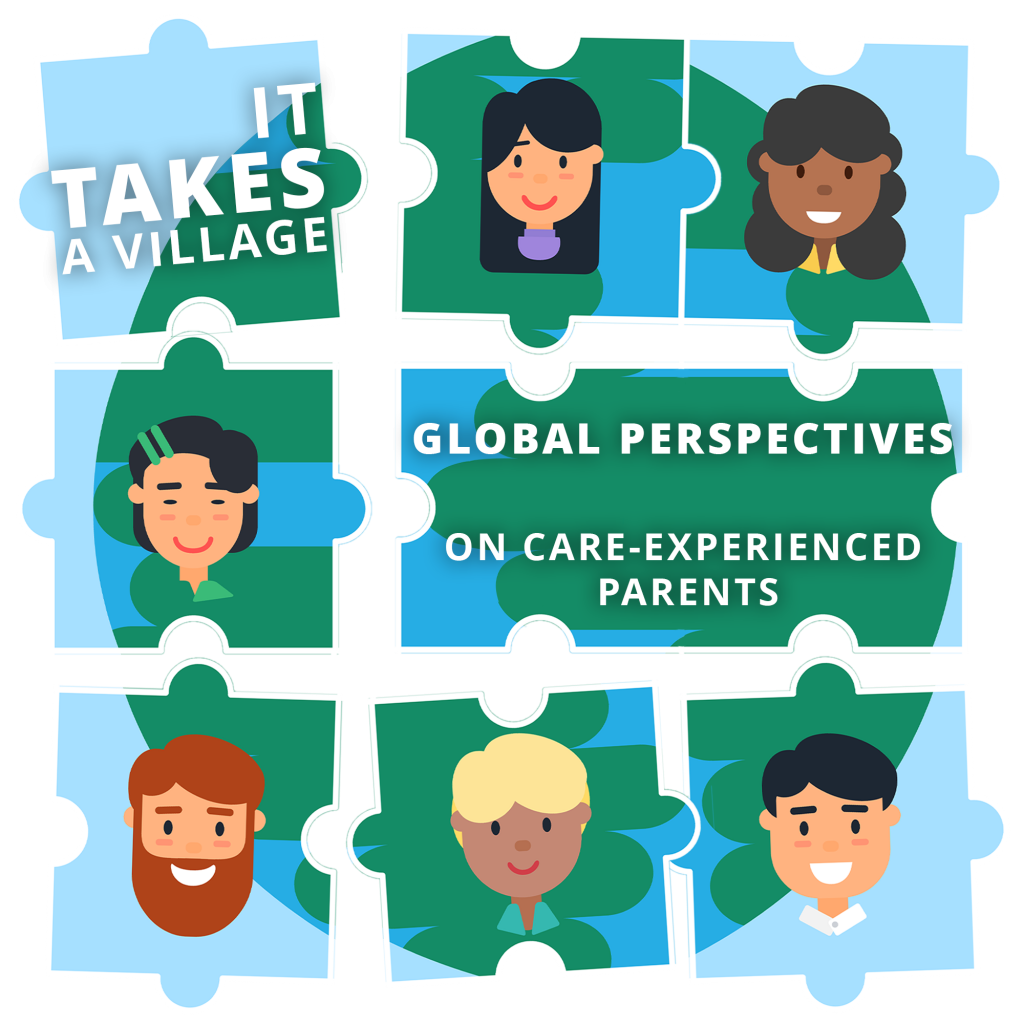I am from Italy. As a child I spent 8 years in foster care, in 4 different families (2 families were my relatives). I had my first daughter at 25 and my second at 29.
What does being a parent mean to you? OR How would you describe being a parent?
For me, being a parent means raising my children with love. That is the core of my parenting. My parents had failings with me, so I know what I want and what I don’t want for my children.
Do you think your experiences growing up affect the way you parent?
My experiences as a child gave me more sensitivity and more determination.
The negative experiences have influenced my life, but I have tried to draw the good from them too; for example, in addition to not repeating the example of my mother, I realised, with time and thanks to the elaboration of my experience, that she needed to be helped and not pushed away. Therefore, besides ending the vicious circle in which I could have fallen, there was a rebirth, a new beginning.
Furthermore, I had the opportunity of very positive examples that I try to transmit to my daughters. For example, my foster parents have given me so much, even simply the fact of reading, something I did not do in my birth family, I have shared it my girls.
What support do you or did you get from professionals?
I ended psychological support at the age of twenty-one and then I no longer received or needed help. I relied a lot on the midwife when my daughters were born, the one from the health system. I also did the pre-natal course with her, which I felt the need for with both my first and second child, as a matter of safety. And the midwife supports you, whatever the parent, whether he/she has had shortcomings or a wonderful family behind him/her. There is the possibility of meeting her weekly to weigh the baby, she gives some advice on breastfeeding…. This has been a great help to me, especially not having a mum.
What support do you or did you get from friends, family or people in the community?
My foster carers were always helpful and not intrusive. They were people I could count on. And that is still the case today. If I need them, they are there. My grandmother died and the foster mother immediately became available to take care of the children, while her partner was by my side during the funeral. They are people you don’t ask and you know they are there. If I have a problem they are a reference. Some people have parents, I have foster carers.
Looking back, what was helpful or unhelpful?
The most useful thing about my fostering experience has been the three years with the family that still supports me. It has been useful in the sense that they really changed my whole life perspective. I mean that I have always been a positive, sunny person, who despite what happened at home, when I went out, it was no longer there. In that family they really allowed me to understand what it means to live a good family life. They were true educators, never telling me ‘this is how it is done’, but looking at their example. I think if I hadn’t gone into foster care I would have done what my mum did with me, so I would have raised my hands, I would have been violent.
When I think of them I remember a film I saw, where there was a teacher who realised that one of his pupils had problems in his family, but he was extremely intelligent. This teacher tries to help him and his mother and the child at the end thanks him. The teacher, however, tells him that now he has to be the one to return the favour. And I feel a bit like that now, that I have to be the one to return the favour, because I have been given this great opportunity and a great favour.
What support / help would you have liked?
At the age of 21, the opportunity to have psychological support ends. For me it was a cuddle, so I still wish every week I could go to the psychologist, sit down and tell anything, because it’s a moment for me. I would like for us who are care experienced to have that support. I don’t know if it’s because we are more fragile, maybe it’s not true that we are more fragile, because everyone in the family has some problem. But I would like everyone to have the possibility of having a psychologist as there is a general doctor.
What advice would you give to professionals, organisations or governments about making parenting / parenthood a positive experience for future care-experienced young people?
The first thing is certainly psychological support, having the possibility of having a competent professional, whom I can choose, whose value I know. This is because it is important to know that someone can support you, besides the foster family. We all have difficulties that we struggle to overcome on our own and we may need it.
Then on an economic level, if I hadn’t had my partner who has economic security, I would have started disadvantaged. I left home without even 1€, went to work and had what I earned, having to fend for myself. My partner had something more and so it was a security for us, but it’s not like that for everyone. So financial help would be important, like what your parents can give you. Institutions could give you what your parents couldn’t, even just a little help.

This Blog is part of our ExChange conference, “It Takes a Village: Global perspectives on care-experienced parents”
To find more resources on this topic check out the conferences below

